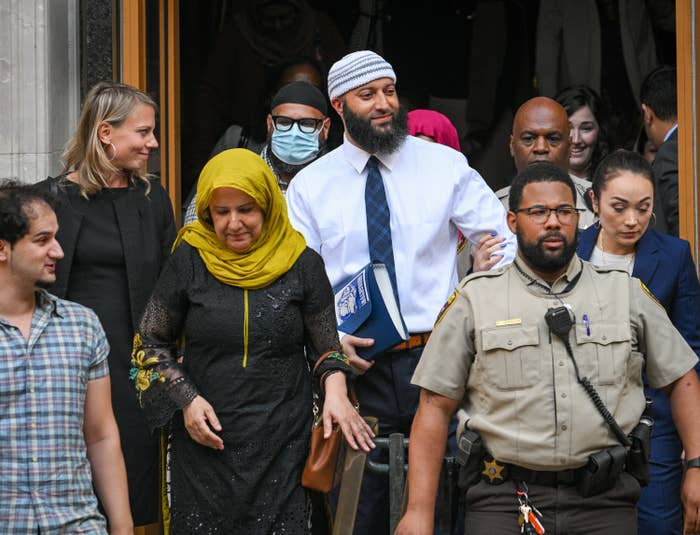
A Maryland appeals court on Tuesday reinstated the murder conviction of Adnan Syed, the Baltimore man who has spent two decades in prison for the 1999 killing of ex-girlfriend Hae Min Lee and who was featured in the first season of the hit 2014 podcast Serial.
In a 2–1 decision, the Appellate Court of Maryland decided that the rights of Lee’s California-based brother had been violated because he was only given one business day of notice about the critical hearing where Syed’s conviction was vacated. After some scrambling, Young Lee was able to get access to the hearing virtually — but he said he had wanted to be there in person.
“Allowing a victim entitled to attend a court proceeding to attend in person, when the victim makes that request and all other persons involved in the hearing appear in person, is consistent with the constitutional requirement that victims be treated with dignity and respect,” the judges wrote in their decision on Tuesday.
As such, the judges vacated the lower court’s order, reinstated Syed’s conviction and sentence, and ordered a new hearing.
But they also issued a mandate that paused the effect of their decision for 60 days in order to give the parties time to work out next steps.
Syed attorney Erica Suter, an assistant public defender and the director of the Innocence Project Clinic at the University of Baltimore Law School, said in a statement that they would appeal to the state's highest court.
"We agree with the dissenting judge that the appeal is moot and that Mr. Lee’s attendance over Zoom was sufficient," Suter said.
"There is no basis for re-traumatizing Adnan by returning him to the status of a convicted felon. For the time being, Adnan remains a free man," Suter added. "We remain optimistic that justice will be done."
Rabia Chaudry, an attorney who has previously advocated on Syed’s behalf, wrote on Twitter, “We stand by the integrity of the evidence that exonerated Adnan and urge the Baltimore Police and States Attorney’s office to find the source of the DNA on the victims shoes and find Hae Min Lee’s actual killer.”
After 23 years behind bars, Syed was freed from prison in September by a Baltimore judge who vacated his 2000 conviction for murder.
Prosecutors had asked the judge to toss Syed’s conviction, saying they could no longer stand by its integrity upon learning that potentially exculpatory evidence about two other potential suspects was never shared with Syed's original team in what is known as a Brady violation.
“This information was not available to the Defendant in his trial in 2000, and the State believes it would have provided persuasive support substantiating the defense that another person was responsible for the victim’s death,” prosecutors had said.
In comments he originally made via Zoom at the hearing last year, Young Lee emphasized how his family has not been able to get closure in his sister’s killing.
“I’ve been living with this for 20 plus years and every day when I think it’s over, when I look and think it’s over or it’s ended … it always comes back,” Lee said.
UPDATE
This story has been updated to include a comment from Erica Suter.
